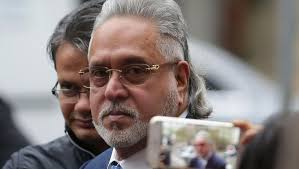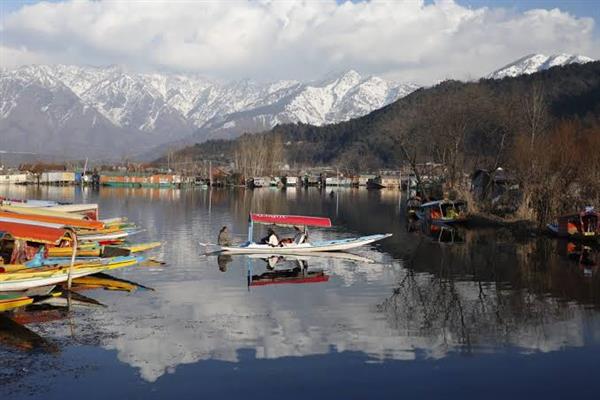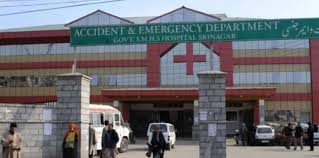Some 25 kms from Srinagar, a quiet and serene village on Srinagar-Bandipora Road, at first glance, looks unassuming. The village is nestled among beautiful fruit orchards. It is quiet. It was once home to one of Kashmir’s most cherished fruits – indigenous Kashmir melons.
Close by flows the River Jhelum, in its broadest width in the valley. It looks majestic here. It is a place that Britishers and Indian travellers would stop by on their Jhelum boat journeys to north Kashmir. In the 1990s, the area was part of the dreaded Ikhwan militia’s area of influence. A lot changed in this area during those tumultuous years. But not its rich productive soil. The area has remained a Jhelum flood basin for many centuries. The area’s soil has magic. It produces some of the finest agricultural and horticultural products.
This village is not just another village of serenity and beauty of Kashmir. This is the place where one of India’s most successful business houses made its initial fortunes. And it is a story that few people in Kashmir and elsewhere in India know!
Welcome to Shilwath, in Bandipora district, where Vijay Mallya’s father, Vittal Mallya’s United Breweries Limited (UBL) grew and processed hops for the company’s most popular brands, and made fortunes. Yes, it is here, in this small village of north Kashmir, where the fugitive Vijay Mallya’s family made their initial fortunes.
How it all started
Mallyas’ connection with Shilwath area dates back to the time when his family was really sort of the ‘kings of good times’. It started around 1972 when Vittal Mallya met the then Kashmiri leader Sheikh Abdullah on a business trip. Vittal’s foreign agro advisers are said to have told him to explore Kashmir to grow hops for the company’s beer products.
“When Mallya approached Sheikh sahab for the first time, he sounded to be more interested in exploring Kashmir’s agro potential”, a retired government official, then looking after the region’s agriculture, told KP.
“And then one fine day he proposed to grow hops here. And looking at the potential of the initiative in creating jobs, the then government accepted the proposal”, he adds.
People in the know of how it all started insist that the permission of starting hops cultivation was done with the understanding that the liquor brands made out of the hops produced in Jammu & Kashmir would not be marketed in Jammu & Kashmir.
“At that time, just like today, liquor was a taboo in Kashmir”, says Abdus Sattar (name changed), a farmer who worked at one of breweries in Shilwath.
“All the processed hops was transported out of Kashmir to the company’s factories in India. Most of the workers did not know who the owners were. We were strictly not allowed to sell or market it locally”, says Sattar.
Initially, Jammu & Kashmir Government leased out two acres of land to the Mallya’s company to start a nursery, that was supposed to provide seedlings to farmers to grow hops. From the nursery, farmers would get the hops plants and then grow those on their lands. There was an understanding between the United Breweries and farmers that the latter’s produce would be bought by the company.
“It was not just Shilwath village. Several other villages in north Kashmir grew hops for the company. It was done mostly in an obscure manner because religious preachers and elders in many areas were against the practice”, said Jalal-ud-din Bhat, another elder of a nearby village.
United Breweries had also constructed several breweries in Shilwath and some surrounding villages. These breweries were mostly run on steam boilers. Although most of the workers there were from Kashmir, oversight and quality control was also done by professionals from outside the state.
As the production of hops grew, United Breweries got almost complete beer market monopoly in India.
But what made the United Breweries have an edge over other competitors is the quality of the hops produced in Kashmir. It is known to have been exceptional. Those who used those UB products then would say it was a product like no other. Kashmir’s hops were known to have exceptional characteristics.
With the onset of armed militancy in 1990s in Kashmir, hops cultivation abruptly stopped. The breweries/distilleries were burnt down. Some people who worked in the distilleries had to go into hiding. There are unconfirmed reports of some workers having been subjected to physical torture by armed fighters so as to discourage them from engaging in the business.
“First militants warned locals to restrain from cultivating hops, few listened but other continued. One fine night, militants in large number came and burnt orchards having hop plants. It created fear psychosis, resulting in others also cutting hop plants as a result of which hops cultivation in Shilwath died a natural death,” locals said.
Today, in Shilwath and surrounding areas, youngsters have no idea of the hops cultivation. Elders tend not to talk of the past because it remains a cultural taboo in the area. Most of the people KP team tried to speak to avoided talking about the past. Today, they are more interested in value-added cash crops other than hops.
And then some people don’t want to even think of the past.
“Whatever was being done then was not in line with our faith and culture. Although locals did not consume the beer, yet it was wrong to get involved in something which is prohibited in Islam in the first place”, a religious preacher in the area told KP.
The unknown riches
The Mallyas’ are known to have earned tremendous riches during the years their hops were grown in Kashmir. No one exactly knows the quantum of that. Considering the market volume and UBL’s market share during the 70s and and 80s, the earnings could well be in hundreds of crores.
Meanwhile, UBL’s total income stood at Rs 12,444 crore as against Rs 10,281 crore in 2016-17, up 21.03 per cent.
In 2017-18, the company’s net profit was up 71.63 per cent to Rs 394.63 crore, compared to Rs 229.92 crore in 2016-17.
So, even as Vijay Mallya’s Kingfisher Airlines ended up in a fiasco, and he is a declared absconder in a multi-crore bank loan default case, the UBL remains in good times.
About Hops
Hops have been used since ancient times for medicinal purposes and to brew beer. They require specific soil and climatic conditions to grow well and these are found in Jammu and Kashmir and elsewhere in northern India. Hops are used for brewing as they have preservative properties which ensure that the beer retains its freshness for longer. Jammu and Kashmir is a Himalayan region in north-western India famous for its mountain scenery and lakes.
Extent of cultivation
Although, there are no authentic figures available about the exact quantum of land on which hops was grown, people in the area say that cultivation of hops was going on thousands of kanals of land in the area.
“Not one, but almost every orchard in our area was cultivating hops. It was a widespread practice after the Mallyas’ firm gave seedling of hops which then became a preferred crop for locals in this village as it fetched good returns those days when rates of other fruits was not so high,” said Ali Muhammad Dar, a Shilwath resident.
He said from young to old men, people used to eke livelihood from hops cultivation which was processed at a local unit, situated outside the village, where non-local workers who were experts in processing hops, used to convert it into a sold form like shape of cake, then transported outside state in a special carriages.
Bashir Ahmad Wagay, who is now in his 40s, said that children were debarred from visiting these orchards where hops were cultivated.
“Children used to be curious why we were not allowed to visit orchards, then later on we realized they are being used to make beer,” he said adding that most of the illiterate villagers didn’t know that they were supplying this hops for Vijay Mallya’s company.
Wagay, joined by another villager, Nazir Ahmad said that still our elders believe that this hop was used for medicinal purpose. “Had they know it then it is used as a raw material for liquor, I doubt they would not have cultivated as liquor consumption, trade is prohibited in our religion.”
Did J&K state tax the produce?
A retired Commercial Taxes official on condition of anonymity told KP that Mallyas’ managed to export the raw material for their liquor brands from Kashmir in huge quantity without any tax.
“Hop is an agricultural produce, which is tax free. There were special arrangements for transportation to factories of United Breweries for brewing beer”, he said, adding “the whole supply chain was designed in a manner that taxes were not applicable”.
A renewed interest?
Interestingly, in 2009, during his visit to Kashmir, Vijay Mallya had created ripples when he had hinted that he would re-start hops cultivation in Kashmir.
It was a successful project, we produced the best quality beer from Kashmir hops and the then Kashmir government had taken keen interest in the cultivation of hops, Mallya is reported to have said.
Observers believe that such a plan was never to materialise in today’s Kashmir. Moreover, Vijay Mallya’s business collapse and the United Breweries’ major management changes were factors that would hardly ever make such thing happen again.
Besides, hop cultivation, the United Breweries had also acquired 14 kanals of land in Industrial Estate Zainakote on the suburbs of Srinagar.
“We could not acquire it back as we lost the case in Supreme Court. He had given power of attorney to a local guy who is operating that unit now,” said Managing Director, SICOP R.L. Tickoo, told KP.
Noted industrialist and former President of Federation of Chamber of Industries, Kashmir (FCIK), Shakeel Qalander told KP that before the onset of the armed struggle in Kashmir, Mallya’s company indeed used to export hops from Kashmir, besides using the SICOP land for some production in Zainakote.
Interestingly, Walter Lawrence in his famous book “The Vale of Kashmir” mentions about the Hop cultivation in Kashmir.
“It is rash to pronounce any opinion on the future of the wine trade of Kashmir. The vineyards are under the direct management of the state, and in spite of supervision the vines do not receive the sedulous cultivation which alone can give success. The cultivators of the country have not taken up viticulture, and although Raja Sir Amar Singh and Diwan Amar Nath maintain vineyards and send their produce to the wine factory. I don’t think that the wine industry of Kashmir will ever attain real importance until the villagers engage in vine-growing. The only market at present for the wines is Rinagar, as the long road carriage and the duties levied at the frontier make it difficult to land Kashmir wine in India at a moderate price; and, briefly, the business in present circumstances does not pay.”
“But hops, also introduced by Maharaja Ranbir Singh do pay, and the hop-garden at Dubgam below Sopur has within the last few years been reclaimed from the wilderness into which it had passed and yield a some return to the state. Eighty three acres were under hops in 1893, and the outturn amounted to 250 maunds. The soil of Dubgam is no way superior to that of the country surrounding it, and there is nothing to prevent a large extension of the area now under hoops. But as in the case of wine grapes so in the case of hops, the people have no taken up hop cultivation, and until some of the few wealthy landowners in Kashmir pay their attention to this most safe and profitable enterprise hop cultivation will remain in the hands of the state.”
And that seems to be an insightful commentary on the matter.






